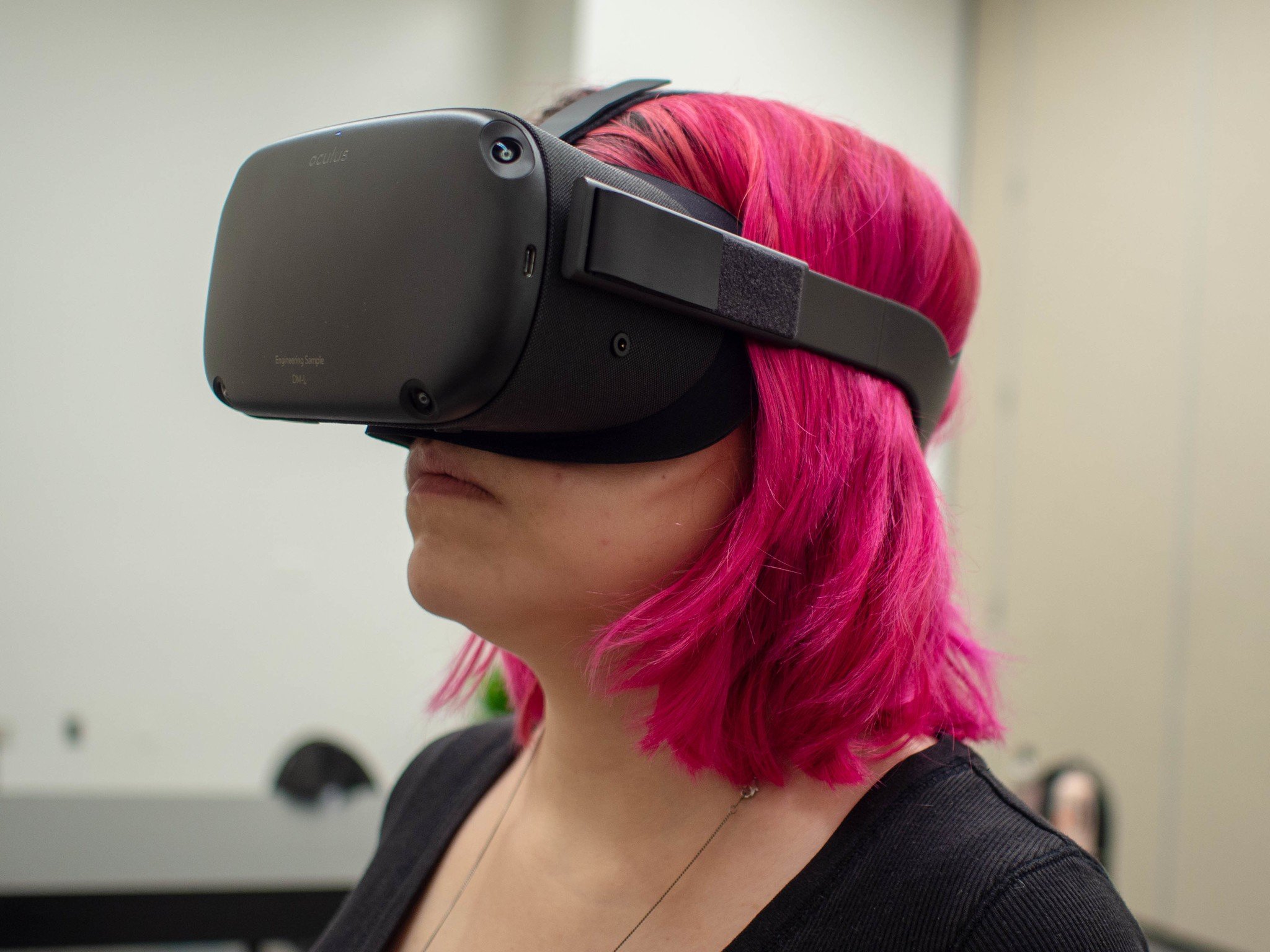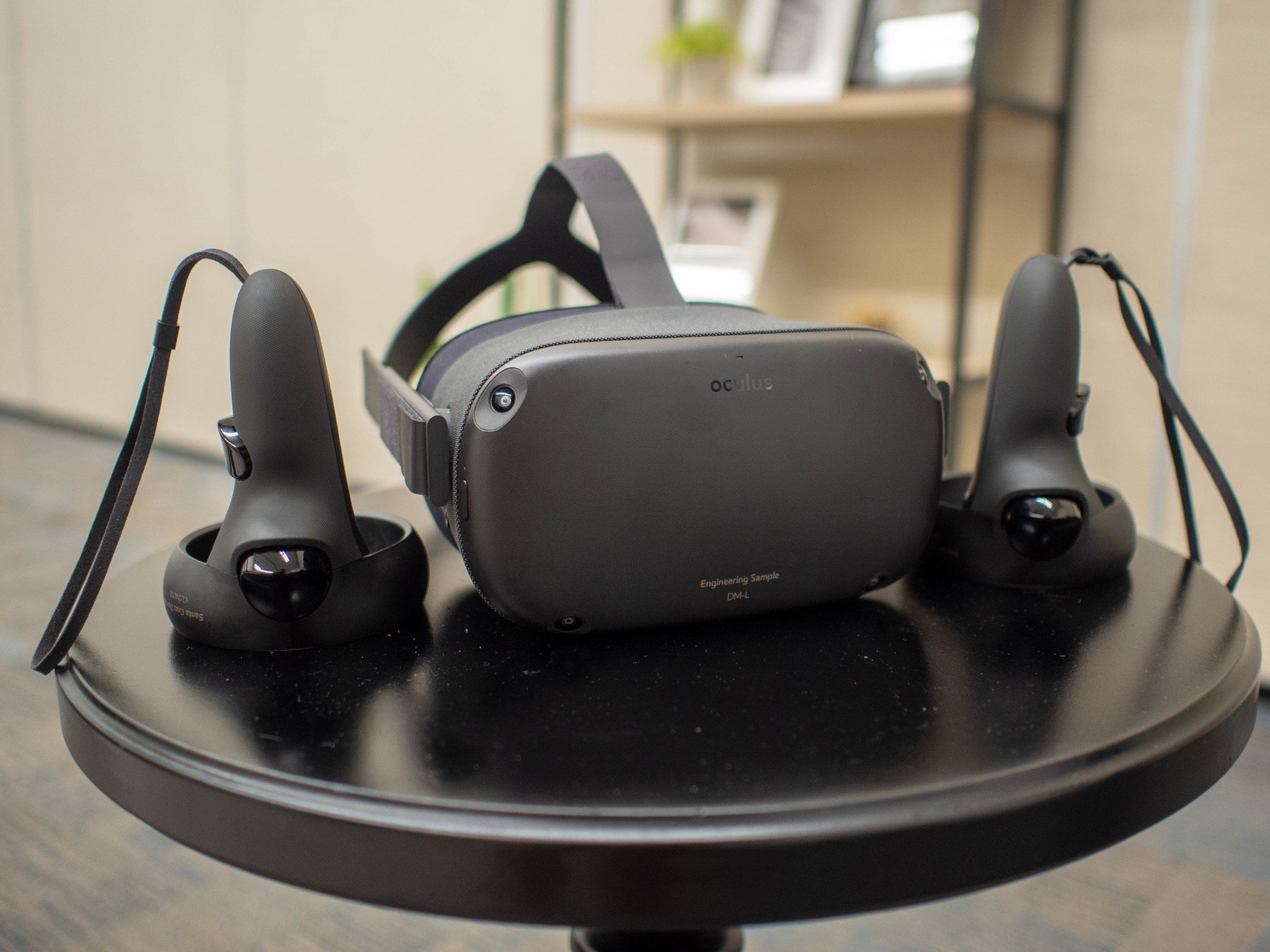I never cared about VR, but the Oculus Quest made me a believer.
I've always been wary of virtual reality headsets. I'm that person who gets motion sickness easily — an obvious obstacle for VR since the dawn of time — but I've also had issues with accessibility. I've been jumping from apartment to apartment for the past decade, so not only is space an issue but so is portability. I already have to pack and lug around a fragile desktop PC along with furniture, so why would I want to constantly set up space for VR?
VR headsets get more advanced every year, but not until recently have I thought about purchasing one (the fact I now have access to money notwithstanding). That's where the Oculus Quest comes in.
By now you've already heard about the Oculus Quest, the company's first all-in-one gaming system. There's no need for tricky wired setups, properly measured space for play, or even PC upgrades. It's plug-and-play with a wide library and a competitive, affordable price. For people like me who aren't deeply invested in VR but enjoy new technology as a consumer and games enthusiast, it's incredibly appealing. My colleague Russell Holly wasn't kidding when he said that the Quest is "the future of VR for a lot of people," especially since he was apparently talking directly to me.
Truly wireless
One of my earliest memories with VR is tripping over cables. It was around 2015 and I was testing out a game at a small festival on one of the original Oculus Rift demo kits. I don't remember much about what game I was playing. All I can remember is the person running the demonstration moving me around and trying to lead me like I was a dog that got tangled in its own leash. There were walls to keep me from accidentally wandering into the crowds, but there was nothing to keep me from falling prey to wires.
It wasn't even until I took off the Quest at the end of the preview that I realized I didn't have to even think about tripping. I got it onto my head, slipped my hands through the controller wrist bands, and I was good to go.
There were some issues in regards to getting it on. The straps are tough to find when your vision is limited so I had the person running the demo adjust it for me. I'm sure with more time I'd get used to my exact fit (including my glasses, which I was able to wear thanks to the depth adjuster) and the problem would go away.
There's no such thing as "truly wireless" in tech but the Quest was the closest I've ever personally gotten.
The Oculus Quest also eliminates one of the biggest concerns I had. In the aforementioned disastrous demo, I was super hesitant to move around due to the wires, but also because I was afraid of walking into the middle of a crowd, or out of sensor range. The Quest is a standalone headset though, which means you don't have to worry too much about being in play range since you set all that up yourself thanks to Guardian. You use the controllers like a laser pointer to map out where you want the edges of your play boundary to be, and if you get near it during a session, a grid will pop up to deter you from moving any further. At one moment I wore the headset outside the previously-established play area and I got an error message that told me I was disconnected. Inside-out tracking also kept me in place and erased any anxiety I had about moving.
There were also no external sensors to contend with, so placing myself inside the area wasn't even a passing thought. There's a camera built into the headset that tracks your movements, so you can also move your arms in a way that can get picked up by the system. The controllers also have built-in sensors that track more specific finger gestures, although these aren't completely accurate. I had issues making a "thumbs-up" and there was a small delay between when I moved my thumb and when it showed up inside the set, but I could do finger guns. Plus, there's no tracking yet for individual digits, but that won't come into play when playing most games.
I felt free to swing my arms, duck, turn around, and move my head. There's no such thing as "truly wireless" in tech but the Quest was the closest I've ever personally gotten.
A fine, powerful example
One of the games I checked out was Journey of the Gods, a first-person fantasy adventure game from Turtle Rock Studios where you can swing a sword, bash an object with a shield, shoot with a crossbow, and, most impressively, turn yourself into a God and control the growth of plants and other gargantuan tasks. You also apparently get an owl, which you can pet, and that's super important.
Some of the more specific movements took some getting used to. I still wanted to grab the sword when it was presented to me, even though that kind of movement isn't possible in VR. Instead, you reach forward and hit the trigger. This is also what you have to do when prepping your crossbow, and that also took some getting used to. Once you get the gestures down, the rest of the gameplay comes naturally. I was flipping out arrows like I was a pro.
Accuracy took a hit during the "God mode" segments, where you tower over the landscape and move the Earth to your will. During the tutorial, a giant bird tasks you with making a plant grow and then shrinking it back down. I'm unclear if this was because I still hadn't adapted to seeing my hands replicated in VR or if it was just a consequence of playing with an early build, but the movements didn't perfectly transition into action. I could still see my hands moving, but it took a few tries to grab onto the plant.
I also tried out Beat Saber in the Quest, which most of us at Mobile Nations agree is a great game. I didn't realize at first that you could duck or that you had a range of different movements with your titular sabers, but once I discovered that, the experience took on a whole new meaning. In rhythm games, input lag can mean death, so seeing so little of that — including with crouching — made playing it seamless. The Quest is worth getting just to play Beat Saber alone.
How it compares to the Rift S
With the announcement of the Rift S this week, which Oculus is touting as a more powerful system, there's talk about if the hype surrounding the Quest will hold up. There's no way (at this point in time, anyway) that a standalone headset with a built-in Snapdragon 835 CPU would be able to compete with one that can directly connect to a PC.
I was also able to try out the Rift S and while the hardware is also super impressive, it's for a completely different market than the Quest.
As Holly discussed in his Rift S hands-on, the Rift S is more of a "modest upgrade" of the current slate of products. It requires most of the same PC specs as the Rift and features a slightly larger field of view. Like the Quest, it also has the Guardian feature, supports six degrees of freedom, and has built-in camera tracking. The difference here is the extra camera, which allows for larger tracking volume than the Quest. You can reach behind you, for example, which is great for when you need to grab your camera from your backpack in Vacation Simulator.
The Quest isn't as powerful, but its wire-free portability compared to the Rift S is going to sway certain users. The tracking is still incredible, there's a wide slate of games to choose from, and the $399 price is certainly appealing. Plus there are no wires, have I mentioned that? Sure it's not the most advanced VR headset on the market, but that's not going to matter to most people. In the end, it's less about the best visual experience and more about getting the best overall experience, and that's what the Quest is all about.
from Android Central - Android Forums, News, Reviews, Help and Android Wallpapers




0 comments: